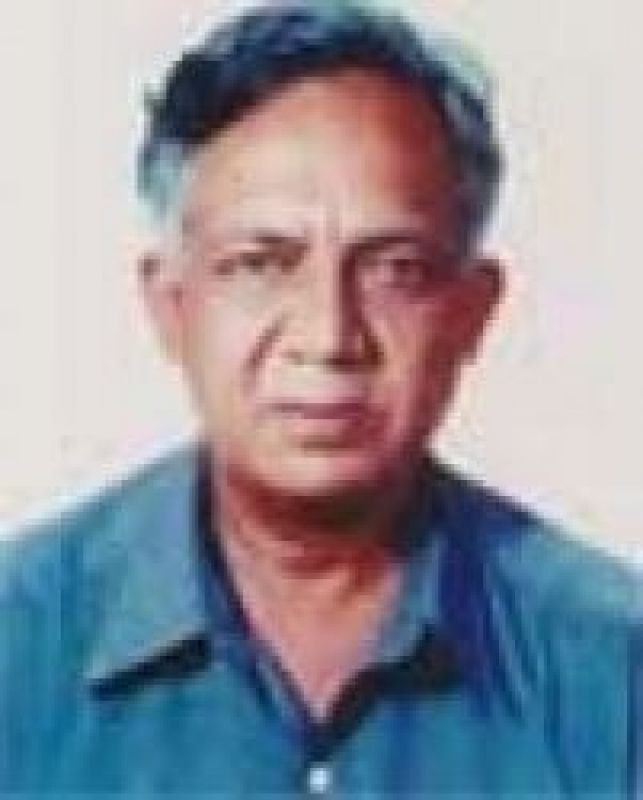- Met office issues nationwide 72-hour heat alert |
- No respite from heat wave for five days: Met office |
- Over 2,100 men evacuated as Indonesian volcano spews ash |
- Dhaka air unhealthy for sensitive groups Saturday morning |
- North Korea conducts a test on 'super-large warhead': KCNA |
Crisis of credibility facing media in Bangladesh

Jehangir Hussain
Jehangir Hussain
Newspapers and journalists in Bangladesh are facing an unprecedented crisis of credibility.
Persistent invisible blows, from within and without, have crippled the press, eroded its credibility and made press freedom a hollow slogan, chanted by opportunists of all hues in this wasteland.
Working journalists are shown the door without paying their wages and other dues.
But some journalists and media owners are minting money.
Working journalists in Bangladesh need to reflect what has gone wrong with the nation's newspapers at a time when journalists Maria Ressa of the Philippines and Dmitry Muratov of Russia won the Nobel Peace Prize for their fight for freedom of expression in countries where reporters faced persistent attacks, harassment as well as murder.
The Norwegian Nobel Committee honoured Ressa and Muratov for their courageous work. Ressa and Muratov were considered 'representatives of all journalists who stand up for their ideal in a world in which democracy and freedom of the press face increasingly adverse conditions.'
The perception is widespread in this country that many of us, journalists, if not all, have surrendered the right and the ability to ask questions and to criticise.
Critics and newspaper readers as well as TV viewers feel that the right of objective reporting has been compromised in this country.
Wealthy people, it is alleged, bring out newspapers or open TV networks to make money and protect their ill-gotten wealth.
Professor Emeritus Serajul Islam Chowdhury said recently that many editors have earned an unenviable reputation of working as public relations officers of wealthy newspaper owners.
It is alleged that on talk shows, talkative editors give sermons on all issues, mostly reflecting ignorance.
Some of these journalis including editors, it is alleged, have more circulation than the newspapers they edit or work for, as they are seen in more places than are their dailies or periodicals.
Some of the editors attend press conferences, they are not supposed to, to overtake reporters only to ask silly questions or to praise the high and mighty for personal gains.
Do we, the working journalists, care to remember the courage shown by the late Abul Kalam Shamsuddin, editor of now defunct Dainik Azad for the hard hitting editorial he wrote on February 22, 1952, condemning the police firing in Dhaka in which a number of students were killed.
In 1972, Faiz Ahmed resigned as the chief editor of BSS to protect two colleagues, a reporter and a senior sub-editor.
There was no shortage of such instances in the past. Now the opposite has become the norm.
The editor of a high circulation Bangla daily after retrenching or encouraging many journalists is getting no response to advertisements for replacements.
British daily, The Guardian never compromised with its core values: honesty, integrity, courage, fairness, and a sense of duty to the reader and the community.
There is undeniable importance of objective newspapers and journalism in societies lacking accountability and the rule of the law.
When the other institutions fail only newspapers can provide the silver lining.
But objective journalism is not possible by surrendering the right to know and criticise without fear and favour.
'With no newspapers, democracy suffers and democracy depends on an informed populace,' believed Thomas Jefferson, the third President of the United States.
Though vilified by newspapers on daily basis, Thomas Jefferson said, 'If I had to choose between government without newspapers, and newspapers without government, I wouldn't hesitate to choose the latter.'
It was at his house in Philadelphia, in June 1776, that Thomas Jefferson wrote the Declaration of Independence.
As a nation, we have possibly lost the way. Do we care to remember that in 1971, the people of this country fought the War of Independence for democracy and the rule of the law.
jehangirh01@gmail.com

